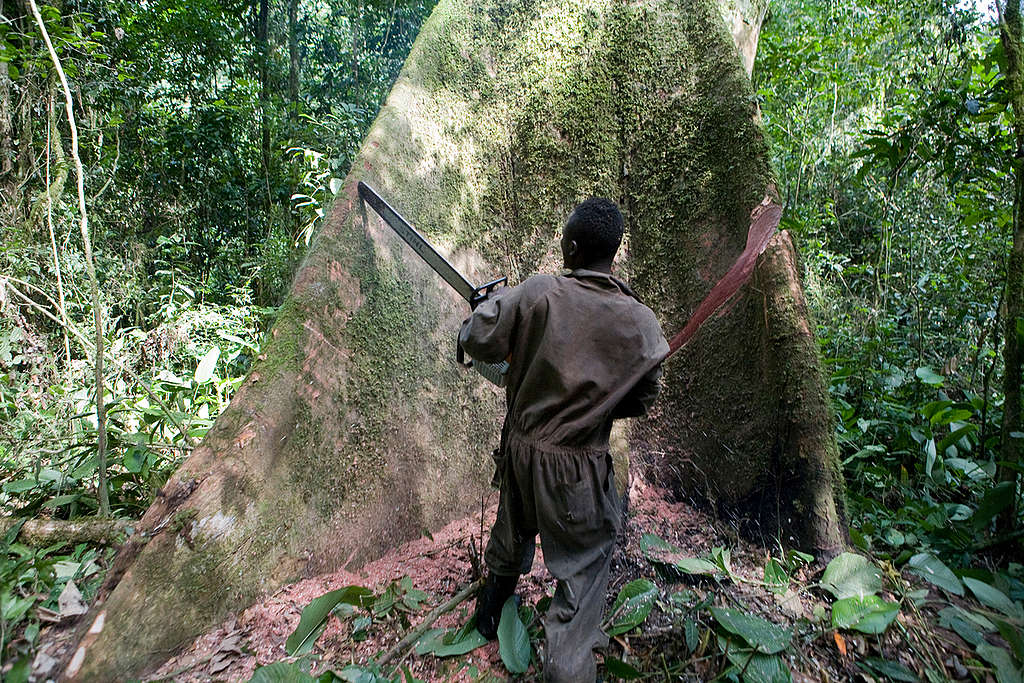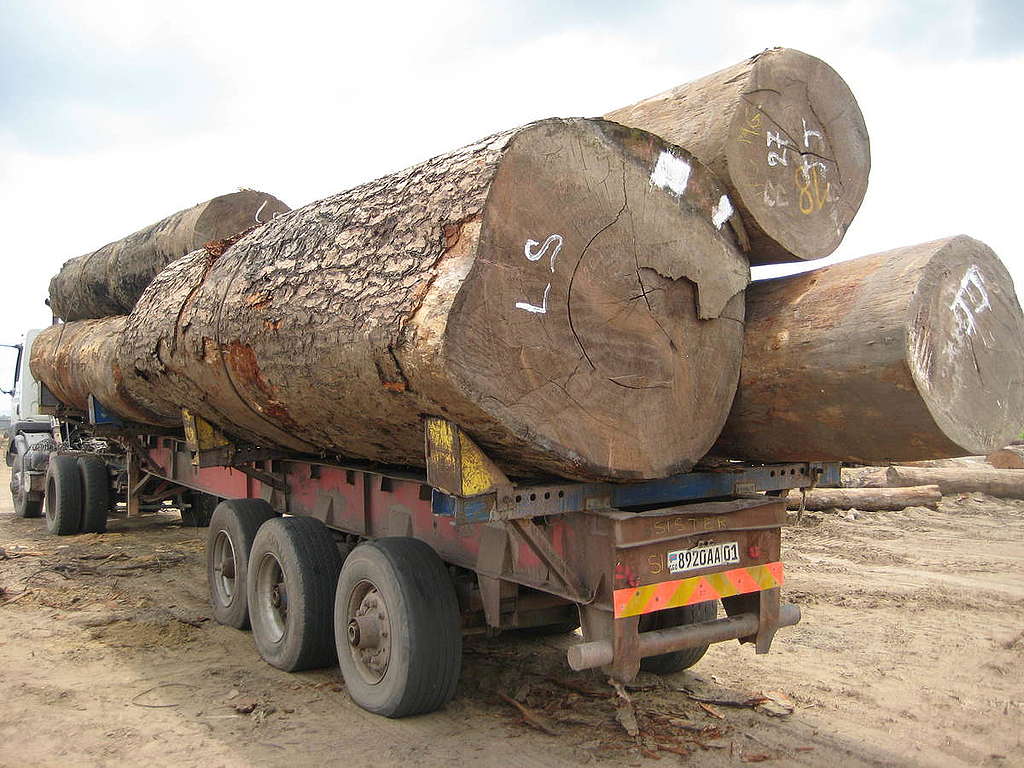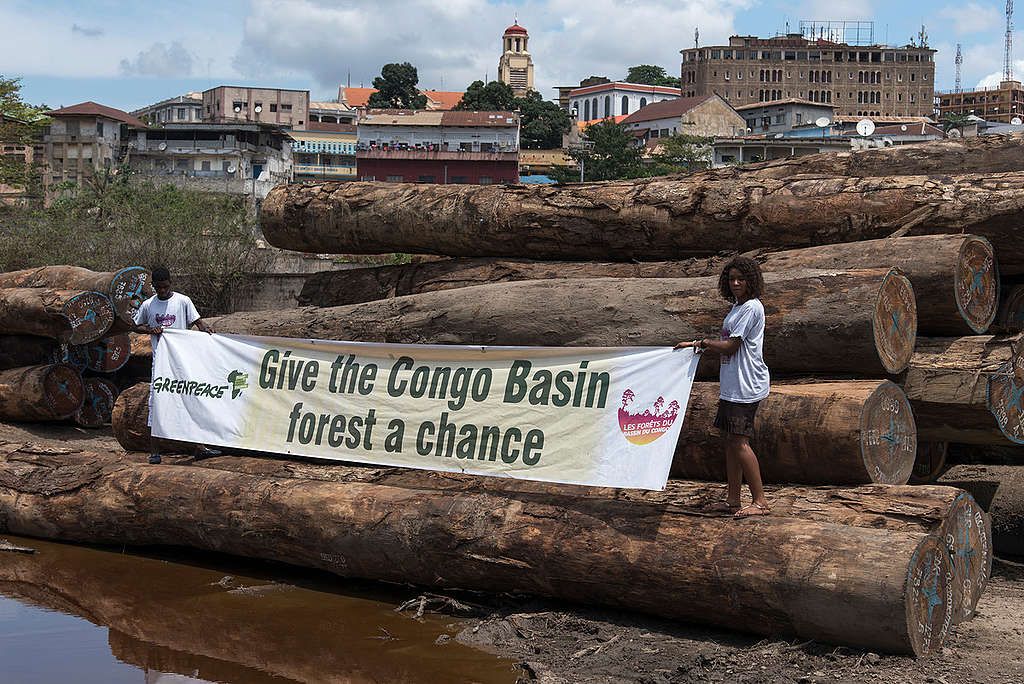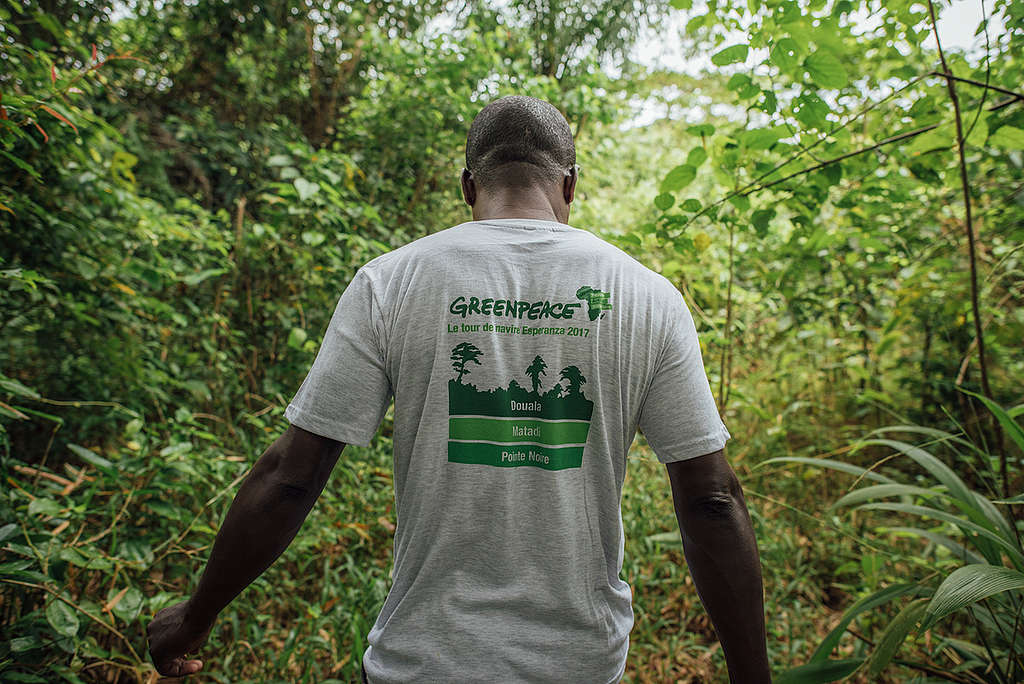This blog explains what the moratorium on new logging concessions in DRC is, how it was violated and why restoring it is essential for both people and nature.
The moratorium on new logging concessions in the Democratic Republic of Congo must be restored. The new Congolese government being formed must cut out corruption and impunity – not the rainforest.
What is the moratorium in the DRC?
Since 2002, a moratorium on the allocation of new logging concessions has been in place in the Democratic Republic of Congo, a country in which most of the Congo Basin forest can be found. The original intent of the moratorium has been to fight off corruption, which is rampant in the logging sector. The moratorium doesn’t mean that no trees in DRC are cut, but it means that no new contracts can be awarded.

Already in 2007, Greenpeace research and investigations of industrial logging in Central Africa confirmed what the World Bank has already determined: “natural resource extractive industries have no record of contributing to poverty reduction or genuine development, and there is little hope that they will do so in the future. These industries both feed off and fuel the whole spectrum of corruption, from pragmatic bribery of some forestry officers to collusion with some politicians and senior officials in order to gain control of forest holdings (for example, in breach of the moratorium).”
natural resource extractive industries have no record of contributing to poverty reduction or genuine development

When did things go wrong?
Things didn’t go well from the very start. The moratorium was immediately violated after coming into force, as scores of logging concessions were issued in a flood of illegal and corrupt allocations. This happened again and again, with some senior government officials violating the country’s own laws. No surprise that forest ministers in the Congolese government want to lift the moratorium altogether, given how much quick money is generated by new logging and how much of it stays in a small circle of cronies.
The latest series of scandals came last year, when the Minister of Environment and Sustainable Development, Mr. Claude Nyamugabo, breached the moratorium nine times, and then – as Greenpeace Africa and civil society partners exposed – he did it again four more times. The area awarded to Chinese and other companies is about three times the size of Kinshasa.
Who is to blame?
The direct complicity of some politicians in breaching the moratorium makes them the immediate culprits. Beyond those pathological forest villains, there is the President Mr. Felix Tshisekedi, who presents himself as an environmental leader, and has made grand speeches in New York or over Zoom about protecting the forest while dragging his feet about restoring the moratorium in his own country.
Greenpeace Africa is also pointing the finger at the external enablers of this industry: there are, of course, the foreign logging companies and the foreign customers who purchase those high-end and wholly unnecessary commodities. Only last year, billions of Euros were spent by France, Germany and the Netherlands to purchase tropical timber, a purely luxury item with tremendous consequences for a country like DRC and the planet. There are also donor countries, working under the acronym “CAFI” (Central Africa Forest Initiative), who’ve been passively observing this illegality by silently transferring millions to the Congolese government while doing nothing to restore the moratorium. The silence continues to this day and so do the transfers of money, already planned for the coming decade.

Why does it matter to Greenpeace and why should we all care?
Although the moratorium was put in place to curtail corruption, enforcing it would also help protect our planet. The Congo Basin forest is the world’s second rainforest and the last one that clearly serves as a carbon sink. It is also the home of Indigenous and local forest communities, and some of the world’s most precious biodiversity. Protecting rainforests is also crucial to defend us from another pandemic like COVID19. This is because such viruses (called zoonotic) spread through contact between humans and animals, which becomes more common as forests are destroyed.
How can we fix this?
The problem doesn’t start with the breaching of the moratorium. Just two weeks before Greenpeace Africa revealed the secret awards made by Minister Nyamugabo, another minister’s reckless conduct was exposed in the ecologically sensitive area of Cuvette Centrale, where Greenpeace revealed a tender launched for nine oil blocks(!). This is an area rich with peatlands, storing more than 30 billion tons of carbon (equivalent to 20 years of the US’ emissions). Oil exploration and drilling, a bad choice anywhere during a climate crisis, is absolutely mad when done in the vicinity of peatlands, which would consequently dry up and release stored carbon. And finally, there are the notorious oil-palm plantations of Feronia, activists have been arrested after rising for their rights against abuses that are more familiar to us from the colonial era.
The reality on the ground is grotesquely detached from President Tshisekedi’s speeches. Pushing him to do the right thing would not be easy, but it’s absolutely necessary. After all, as US President Obama once said, political leaders will never take risks if the people do not push them to take some risks. That applies to the donor countries as well.
The chainsaws can work only if we remain silent. If we act together to protect the rainforest, the moratorium can be restored and the guilty be brought to justice. If we act now, the government that is being established in the DRC during these days may have a genuine commitment to people’s rights and to nature.
Sign and share this petition. Talk to your friends and family and social media network about the beauty of the Congo Basin forest and the threats it is facing.

 Get Involved
Get Involved
